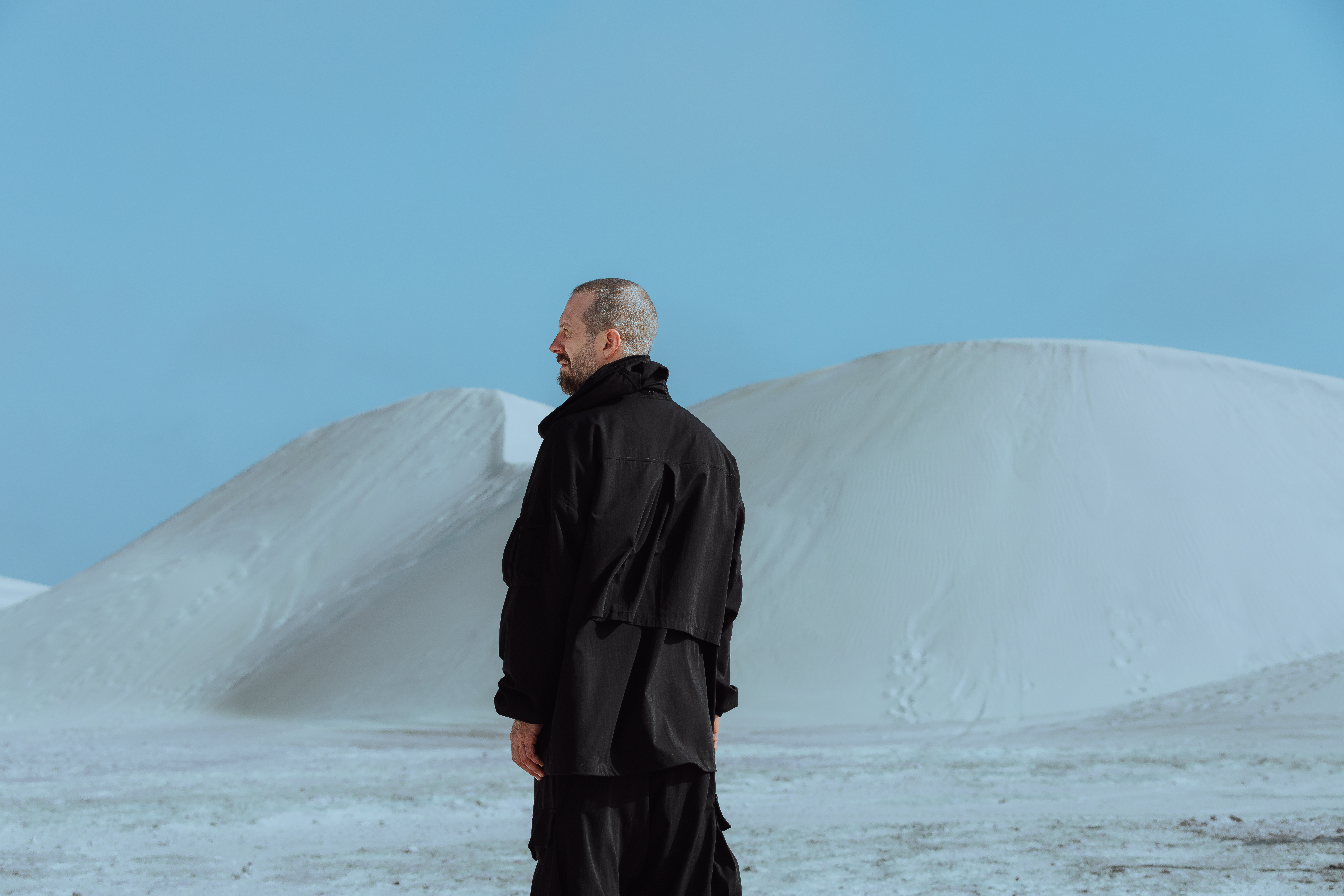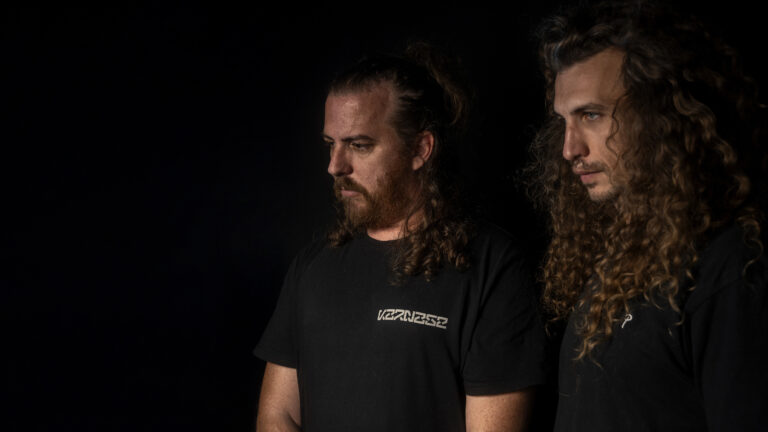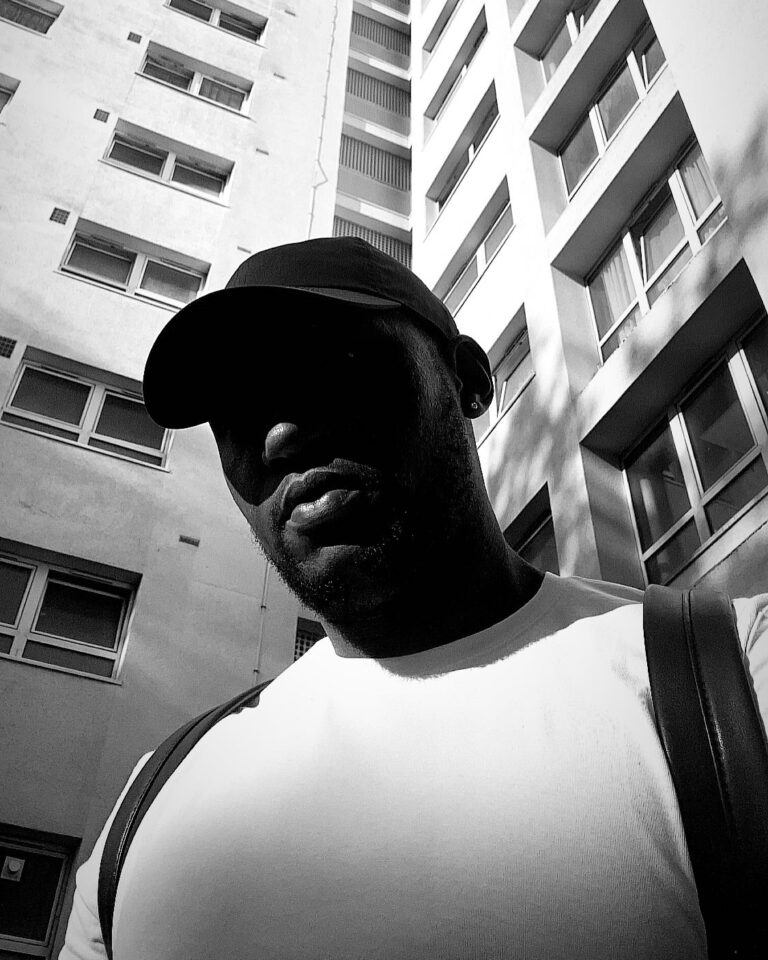2024 has been going great for ShockOne so far. From going on tour in New Zealand and Australia, and supporting Pendulum on their UK Tour, to releasing his third album Organism Algorithm on his Darkmachine Records. With this new album, he once again makes his mark on dancefloor drum & bass, with collaborations with Lee Mvtthews, Freaks & Geeks, Reija Lee, and many others.
ShockOne opens up a conversation about both the new age of drum & bass music and how artificial intelligence fits in all of this. “I’ve been obsessed with this idea for quite some time, particularly with the recent popularisation and widespread access to AI. I find it interesting that the more we learn about ourselves, the more blurred the lines become between intelligence and artificial intelligence, and how we define the two”.
Hi ShockOne, how are you doing? You recently released your debut album, toured New Zealand and Australia, and you’re also supporting Pendulum on their UK tour…
I’ve known the Pendulum guys for quite a while, basically my whole adult life. I toured with them in Australia last year, and that went really well. They did an arena tour down here in October last year. Most Pendulum fans are also ShockOne fans. So, it’s a pretty easy job for me, I don’t have that much warming up to do. People are usually pretty ready to go. I think because we’re all such old friends, the whole touring experience is fun and pretty frictionless. To be honest, most of my prep work the last couple of days has been sorting out how I’m going to film it all on stage. I’m getting some new camera setups, I’ll be recording all the sets. I just finished my New Zealand and Australian leg of the tour for my album, so I’m pretty on form at the moment on the decks. I’m pretty busy. There’s always something different going into big arenas, though. That’ll be fun.
What do you have planned for your UK shows?
The only difference from my New Zealand and Australian shows is I’ll be playing for 40 minutes instead of an hour and a half. I’ve got to try and figure out what not to play. That’s the hardest thing. I struggle with such a short set. It’s like really a matter of working out what not to play. To try and fit all the ShockOne hits in 40 minutes, as well as some new music and music from other people that I like.
It’s actually nice, I honestly don’t know what I’m not going to play. It is hard because even when I play for an hour and a half or an hour it is hard. There were a couple of shows on the NZ and AUS tour where I didn’t have to stop after an hour and a half. I think I ended up playing for a bit over two hours. I have a lot of stuff that I want to play, and if you add in all the new music that’s been sent to me from other people which I really love… I could play for a long time. It is trickier to decide what I’m not going to play.
With your newest album Organism Algorithm out, there’s even more stuff to play! Can you tell me the story behind this album?
I wouldn’t call it a concept album per se, but the term Organism Algorithm came from a book I read by a guy named Yuval Noah Harari. I don’t know if he coined that term or not, but the more
neuroscientists study our brains, the more they start to realise that so much of our behaviour comes down to the result of biochemical algorithms in our brains. It brings the idea of free will into question because we think we’re making these choices but actually when you get really down to it, it’s all algorithmic. I found that really interesting, and coupling this idea to the emergence of AI and how those two dovetail and marry. It brings me to the point of, “What’s the difference between organic intelligence and artificial intelligence?” If so much of us is already algorithmic, how can we differentiate ourselves from artificial intelligence that is algorithmic anyway? Not all of the songs of this album have this theme, but a lot of the songs are inspired by this idea. These ideas are inspired by certain concepts, it’s about building a world where the music exists in a framework. It was the same with my previous album which was probably a lot more conceptual, that one was almost like I was writing the soundtrack to a movie that I had in my head but didn’t have the skills or budget to make. This new one is kind of the same thing, for example, ‘Follow Me’ was the first song where this world started to grow, and that’s why it’s still on the album, even though it’s quite an old song. I wanted to put it on the album because that was where this idea arc kind of started.
Can you tell me about the other songs on the album?
There’s ‘Follow Me’, there’s ‘It’s All Over’, there’s ‘Hardwired’… ‘It’s All Over’ was a song I wrote during the pandemic when I was feeling very apocalyptic. Those three songs I just mentioned came out when I was stuck in Western Australia. I never really felt like they got their time in the sun. I never got to tour those songs when I was releasing them, even though they were all very successful songs for me, so it felt nice to put them on the album. I’m also touring a lot in the US these days, and I feel like there are actually a lot of people who might not have heard the older songs, I’m playing to a lot of new people there. This album is a good way for them to be exposed to it and hopefully discover it for the first time. I’m proud of this body of work, and I’m glad that I pulled it all together to be in one place. Every time I do an album, it really is like bookends on a period of production for me. Then I can put it away and be done with it. Afterwards, I can start fresh and move on to my next thing.
Talking about this bookend on a period of time, and moving on to the next thing… What do you have planned for that?
What I have in mind is putting away old sounds, certain drum sounds, certain synth things, certain templates… I’m really keen to put them away and go back to the ground floor of creativity again and start building from fresh. That’s what excites me. By this point, I’m quite bored of those sounds that I’ve been using for the last few years. Certain drum sounds that people come to associate me with, I felt like I just had to get that all out of my system, which I’ve done now. And now I’m really keen to just start making different things.
It’s very exciting to have that fresh slate and really go back to the granular levels of production and building new snare drums and new kick drums, without any songs in mind. The last few years I’ve had so many half-finished songs and I just needed to get them done. I’ve been very much in song mode for the last year and now I’m not in song mode. I’m just making sounds and that’s really freeing to do, that’s how all those ideas start. Every song starts from a place of literally kind of throwing stuff at the wall, experimenting and trying, actively trying not to write a song for as long as I possibly can to let those ideas grow naturally. That’s probably the most exciting part of the creative process. I’m really excited to be back at that point now.
Absolutely, it’s almost like you have to let your inner child out again. Let it play with the music.
Big time, it makes me think of the fact that more and more, there isn’t space for that kid to play because of the way that artists have to exist within the music industry these days. We’re so pressured to have constant output because of streaming culture. What you find is that you fall into this trap of just putting stuff out all the time, no matter if it’s good or not. You’re not going like, “Well, hold on a second. Is it good? Do I like it? When was the last time I just spent hours, days, weeks at a time playing around?”
Everyone’s looking for the quickest way to get from here to there. “If I can make as many songs as possible and put out a new song on SoundCloud every single week, that’s the key to success.” It’s a way to success, but what are you saying? But are you proud, have you done anything new? Have you broken any new ground? Is anyone going to listen to this song in 10 years? It’s okay to mess around in the studio for months at a time. You might do something brilliant that you might not have done if you had to put a new song out this week.
Is that how you created Organism Algorithm and your other work?
Less so with this album than my first two, because I felt like I had those pressures and it was only midway through doing this album that I realised what I was doing. I had that realisation in myself that I’d kind of fallen into this trap of getting obsessed with just releasing stuff every month. Now that I’ve done this album, I’m really like, “Everyone can back off now.” I’m going to go and be creative in my own time. The world in 2012, when I made my first album, is very different from the world we’re in now, the music industry in particular. I took my whole life to create my first album. I really was going at my own pace, and there are certain songs on there that I spent literally years on. Some songs were two years in the making, tracks like ‘Light Cycles’ and ‘Chaos Theory’. For example, I had the intro for ‘Chaos Theory’ for a year and a half, and I think I wrote seven different songs that followed that intro. While from a business perspective, that’s terrible, from a creative perspective and an artistic perspective, what I ended up at was game-changing for me. I had the same thing with ‘Light Cycles’. I listened to that song recently and it’s still the only song of mine that I can listen to where it actually gives me goosebumps.
When I look at the climate that I and every other artist have to exist in today, and when I think about whether I could have done the same thing now… I don’t think I could. Everyone would say, “You can’t take two years on a song that’s ridiculous.” I don’t apologise for it at all, I think it’s a song that 10 years later, I still get people messaging me saying that song is the thing. In all these different facets of life, people have come to me and said, “That song is what I listen to when I need to feel something.” For example, a particle physicist messaged me and told me he listens to this song to get in his zone. That’s amazing. That to me is timeless. It’s totally worth it.
How else have you evolved from your earlier albums?
Universus came out in 2012, A Dark Machine in 2019, and then this one. I’ve had two kids, and that definitely changes the way I work. I can’t be as self-indulgent as I used to be because I might get on a vibe at 3 PM and then it’s time for daycare pick up or something, but I think I actually got more productive since I had kids. The other biggest impact has been the way the music industry and the climate in which we have to create art have changed. As much as I go on about streaming culture ruining art, the flip side of that is, that me whining about it isn’t going to change things.
On a more positive note, a funny thing, I was saying this to the master engineer the other day. I was listening to the vinyl pressing of Organism Algorithm and I was thinking how the vinyl pressing sounded better than my last album and then I realised it’s not the vinyl pressing it’s the mixdowns and the production that I’ve gotten better at. When I released my first two albums, I suffered from imposter syndrome. Right now, I’ve developed the skill set and developed my craft enough to be able to finish something, be done with it, and go on to the next one. I’m able to be a lot more linear in my output, which is nice.
There are a lot of collaborations on this album. How did you end up working with them?
My primary drive for working with people is really just getting on with them, it’s as simple as that. I like making music with people who I get on with. The Lee Mvtthews guys, we get on super well. Freaks & Geeks guys as well. Very rarely am I looking at a collaboration from a strategic point of view like, “I’ll get them on a song and it’s going to do well for streams.” With Pauline Herr, I was just a big fan of her music, and at the time she was dating another friend of mine who’s also a producer, that’s how we connected. I asked her to record a vocal for one of my tracks and within a couple of days she sent back this amazing vocal. That literally took the song up a couple of notches. It’s probably my favourite song on the album.
Have your kids listened to the album?
My daughter’s favourite song is ‘Heart On Fire’ on this album, she loves that one. She sings it all the time, it’s great. But it’s funny you mentioned that. I’ve started doing this thing ever since my daughter was born, she’s six now. When I had my daughter I had this realisation that by the time she’s all grown up, I’m not gonna know what was on my Spotify playlist. It might not even exist by then and then all this music that I was listening to, I won’t be able to share with her. With digital streaming culture, there’s no archive. I would go and buy albums that meant a lot to me on vinyl, almost purely as an archival thing. So, when she is old enough she can flick to a record collection. It’s good to have at least my last two albums on vinyl, my first album never got pressed which still gives me pain. I want to do a limited pressing of Universus so I can have all three on vinyl.
Thank you for the interview! Any final thoughts?
I hope people enjoy the album and if they’re coming to any of the arena shows on the Pendulum tour, I’ll see them there!
Follow ShockOne: Apple Music / Spotify / Website


